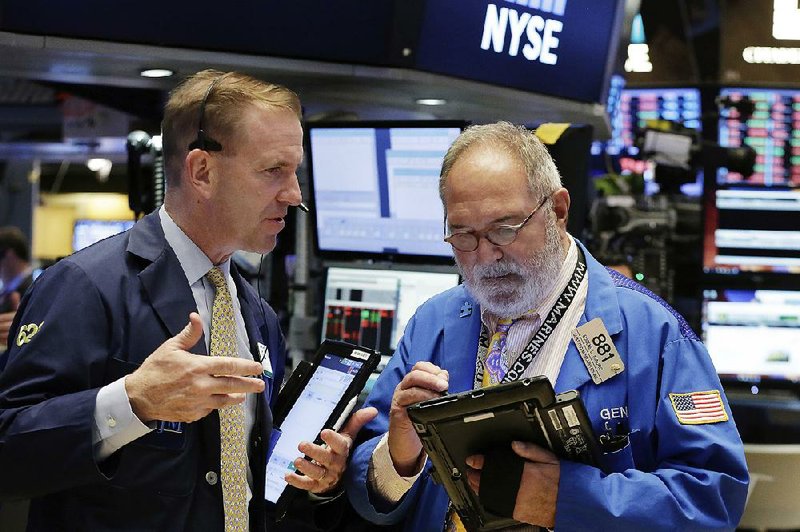Retailers led a modest slide in U.S. stocks Tuesday as the market eased back for the second day in a row, pulling it further below record highs set last week.
The Standard & Poor's 500 index fell 6.77 points, or 0.3 percent, to 2,429.33. The Dow Jones industrial average slid 47.81 points, or 0.2 percent, to 21,136.23. The Nasdaq composite index lost 20.63 points, or 0.3 percent, to 6,275.06.
Small-company stocks fared better than the rest of the market. The Russell 2000 index gave up 1.55 points, or 0.1 percent, to 1,394.90.
Macy's shares sank more than 8 percent after warning that its profit margins could be weaker than the company had forecast earlier. Several other retailers, including Conn's and Casey's General Stores, also slumped after issuing disappointing quarterly results or outlooks.
Banks and other financial companies also posted losses as the yield on the 10-year Treasury note slipped to 2.14 percent, the lowest level since November. Lower bond yields mean lower interest rates on loans, which hurt banks' profits.
Energy stocks notched the biggest gain as crude oil prices rebounded.
"This is a market that's taking a breather and is prepared to move. The question is: in which direction?" said Quincy Krosby, a market strategist at Prudential Financial. "Perhaps the move is going to be, in the short term, a pullback, and perhaps that's another reason we have money going into the Treasury markets as a hedge."
Despite the two-day market slide, the major indexes remain near record highs set Friday.
For the second day in a row, trading got off to a subdued start Tuesday as investors sized up the latest batch of company earnings and economic news.
The Labor Department provided some encouragement early on, reporting that job openings rose 4.5 percent in April to more than 6 million, the most since December 2000, when the government began tracking the data.
Investors found little encouragement in the latest outlooks from several big retailers.
In a presentation to investors, Macy's Chief Financial Officer Karen Hoguet said the company's gross margins could fall more than Macy's expected a couple of months ago, with the first half of the year being especially weak. The company continues to grapple with too much holiday inventory and a lot of discounts on beauty products.
Macy's was the biggest decliner in the S&P 500, losing $1.96, or 8.2 percent, to $21.90.
Other department store chains also fell. Kohl's slid $2.19, or 5.8 percent, to $35.73. Nordstrom gave up $1.51, or 3.6 percent, to $40.14.
Conn's sank 9.1 percent after the furniture and mattress retailer issued a disappointing second-quarter outlook for sales at its established stores. The stock declined $1.73 to $17.15.
Casey's General Stores slid 8.4 percent after the convenience store operator's latest quarterly report card fell short of analysts' expectations. The stock fell $9.84 to $106.66.
In energy futures trading, crude oil prices rebounded after an early slide. Benchmark U.S. crude gained 79 cents, or 1.7 percent, to close at $48.19 a barrel in New York. Brent crude, used to price international oils, added 65 cents, or 1.3 percent, to finish at $50.12 a barrel in London.
Business on 06/07/2017
